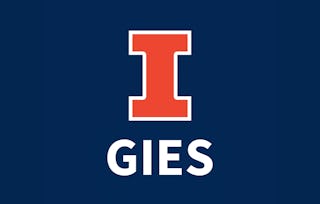There is mounting concern that organizational groups and teams often fail to learn from their past experiences. It’s pertinent to address this issue as groups and teams are often the main ways that work gets done in organizations.

Creating a Team Culture of Continuous Learning

Creating a Team Culture of Continuous Learning
This course is part of Culture-Driven Team Building Specialization



Instructors: Alan Barstow, Ph.D.
9,449 already enrolled
Included with
194 reviews
Skills you'll gain
Details to know

Add to your LinkedIn profile
4 assignments
See how employees at top companies are mastering in-demand skills

Build your subject-matter expertise
- Learn new concepts from industry experts
- Gain a foundational understanding of a subject or tool
- Develop job-relevant skills with hands-on projects
- Earn a shareable career certificate

There are 4 modules in this course
Thank you for joining us. In this module you will learn to step back and re-frame your point of view, and apply systems thinking in everyday situations in order to help your team to be creative and innovative. Our goal is to enable you to learn through real-life stories, practical scenarios illustrated by actors, on-going conversations, suggested readings and links rather than lectures and instructions. So, come join us at the table, bring your own experiences with you, and be part of the conversation! Check out this NY Times story before you begin: (https://www.nytimes.com/video/business/100000004807604/the-power-of-outsiders.html?smid=fb-share) This story illustrates many of the important points of this course: the importance of thinking about the whole system, the value of including different, outside perspectives (not just experts), and - even when you and your team come up with a breakthrough idea - accepting that it is a difficult challenge to spread the idea and make change happen.
What's included
9 videos6 readings1 assignment2 discussion prompts
Thank you for joining us in this module! You will learn to recognize the strengths and barriers - visible and invisible - that exist in teams. Quite like the George Washington Bridge story in Week 1, where you learned about Framing and Systems Thinking, here you will learn to define, frame and diagnose the problems and conflicts that can arise in teams; and you will learn to think about data gathering and creating solutions that work! Join us at the table.
What's included
11 videos5 readings1 assignment2 discussion prompts
Thank you for joining us In Modules 1 & 2. In the previous modules you have learned about Framing, Reframing, Systems Thinking, and Taking a Diagnostic Focus on Groups and Teams. In this module you will learn about disabling and enabling group and team structures. You will also learn about diffusing innovations, and how to have productive conversations using the Ladder of Inference as a guide.
What's included
6 videos4 readings1 assignment2 discussion prompts
Thank you for staying with and being a part of our emergent conversations. If you have accompanied us through weeks 1,2 and 3, we are now at the closing end of our on-going discussion around learning in teams - in this section, we'll focus on Complex Adaptive Systems and structures that foster and accelerate engagement, learning and team conversations. Come join us.
What's included
9 videos4 readings1 assignment1 discussion prompt
Earn a career certificate
Add this credential to your LinkedIn profile, resume, or CV. Share it on social media and in your performance review.
Instructors

Offered by
Explore more from Leadership and Management
 Status: Free Trial
Status: Free TrialUniversity of Illinois Urbana-Champaign
 Status: Free Trial
Status: Free TrialUniversity of Michigan
 Status: Free Trial
Status: Free TrialUniversity of Pennsylvania
 Status: Free Trial
Status: Free Trial
Why people choose Coursera for their career

Felipe M.

Jennifer J.

Larry W.

Chaitanya A.
Learner reviews
- 5 stars
75.38%
- 4 stars
14.87%
- 3 stars
7.17%
- 2 stars
1.02%
- 1 star
1.53%
Showing 3 of 194
Reviewed on Jun 9, 2020
Very interesting material well presented by the four instructors.
Reviewed on Mar 6, 2017
A lot of great insights on the way a team functions and generates ideas and projects. The format of this MOOC is quite original (discussion between a few speakers) and stimulating. I
Reviewed on Feb 6, 2021
It is a wonderful course and I recommend all the students to audit this course in High School.

Open new doors with Coursera Plus
Unlimited access to 10,000+ world-class courses, hands-on projects, and job-ready certificate programs - all included in your subscription
Advance your career with an online degree
Earn a degree from world-class universities - 100% online
Join over 3,400 global companies that choose Coursera for Business
Upskill your employees to excel in the digital economy
Frequently asked questions
To access the course materials, assignments and to earn a Certificate, you will need to purchase the Certificate experience when you enroll in a course. You can try a Free Trial instead, or apply for Financial Aid. The course may offer 'Full Course, No Certificate' instead. This option lets you see all course materials, submit required assessments, and get a final grade. This also means that you will not be able to purchase a Certificate experience.
When you enroll in the course, you get access to all of the courses in the Specialization, and you earn a certificate when you complete the work. Your electronic Certificate will be added to your Accomplishments page - from there, you can print your Certificate or add it to your LinkedIn profile.
Yes. In select learning programs, you can apply for financial aid or a scholarship if you can’t afford the enrollment fee. If fin aid or scholarship is available for your learning program selection, you’ll find a link to apply on the description page.
More questions
Financial aid available,


